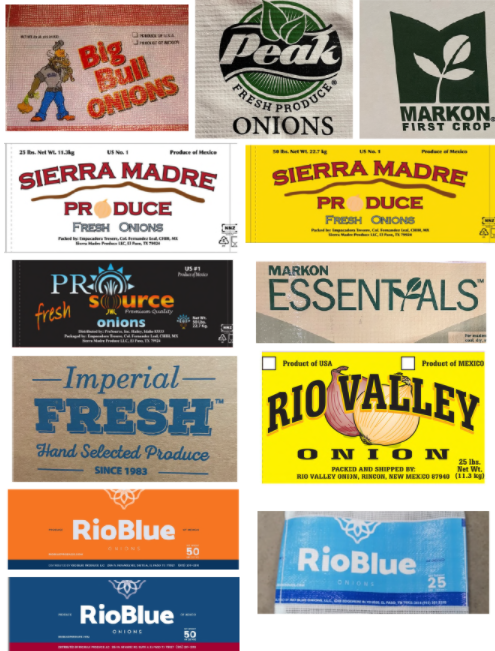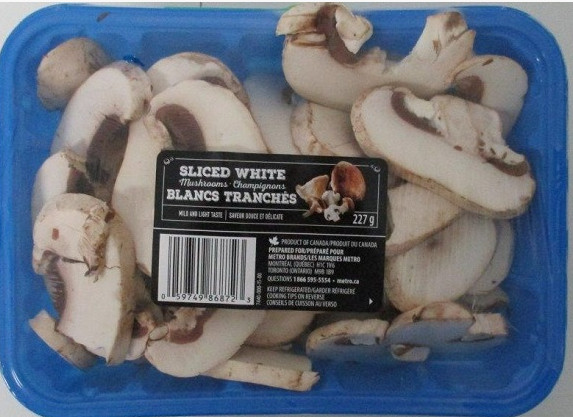Along with CDC and state and local partners, the FDA is investigating a multistate outbreak of Salmonella Oranienburg infections linked to whole, fresh onions. As of October 19, 2021, there were 652 reported illnesses, 129 hospitalizations in the following states: AL, AR, CA, CO, CT, FL, GA, IA, IL, IN, KS, KY, LA, MA, MD, MI, MN, MO, MS, NC, ND, NE, NJ, NM, NY, OH, OK, OR, PA, SC, SD, TN, TX, UT, VA, WI, and, WV. No deaths have been reported. FDA’s investigation has identified ProSource Produce, LLC (also known as ProSource Inc.) of Hailey, Idaho, and Keeler Family Farms of Deming, New Mexico, as suppliers of the contaminated whole, fresh onions imported from the State of Chihuahua, Mexico. Recalled onions supplied by ProsourceProduce and Keeler Family Farms were initiated. Recalls have also been initiated by Potadon Producers, Hello Fresh, and EveryPlate. The products were distributed by Big Bull, Peak Fresh Produce, Sierra Madre, Markon First Crop., Markon Essentials, Rio Blue, ProSource, Rio Valley, and Sysco Imperial. @ https://www.fda.gov/food/outbreaks-foodborne-illness/outbreak-investigation-salmonella-oranienburg-whole-fresh-onions-october-2021?utm_medium=email&utm_source=govdelivery
ruth
Do not eat, sell, or serve recalled onions from ProSource Produce LLC and Keeler Family Farms
ruth
Walmart recalled ~3,900 bottles of Better Homes and Gardens-branded- Essential Oil Infused Aromatherapy Room Spray with Gemstones in six different scents due to the possible presence of a rare and dangerous bacteria and risk of severe injury and death. Tests conducted by the CDC determined that a bottle of the room spray contained the rare and dangerous bacteria Burkholderia pseudomallei, which causes melioidosis, a condition that is difficult to diagnose and can be fatal. CDC has been investigating a cluster of four confirmed cases of melioidosis, including two deaths in the U.S. The CDC found a bottle with the same type of bacteria in the home of one of the melioidosis decedents. The contaminated spray was sold in 55 Walmart stores between February and October 21, 2021. @ https://www.cpsc.gov/Recalls/2022/Walmart-Recalls-Better-Homes-and-Gardens-Essential-Oil-Infused-Aromatherapy-Room-Spray-with-Gemstones-Due-to-Rare-and-Dangerous-Bacteria-Two-Deaths-Investigated
Customers will also receive a $20 Walmart Gift Card upon return.
Consistent with CDC recommendations, consumers should immediately stop using the recalled room spray, double bag the bottle in clean, clear zip-top resealable bags, place it in a small cardboard box and return it to any Walmart store for a full refund. Do not open the bottle. Do not attempt to throw away or dispose of the bottle.
When handling the product or cleaning contaminated surfaces, please follow the CDC guidance below.
ruth
According to the CFIA, Carleton Mushroom (Osgoode, Ontario) has recalled Sliced White Mushroom products from the Canadian marketplace due to suspected Listeria monocytogenes contamination. Metro Stores Sliced White Mushrooms, sold in 227 gram (half-pound) blue plastic trays with a clear plastic cello top, a best-before date code of 2021 OCT 25. The product was sold in Ontario and Quebec. The recall was triggered by Canadian Food Inspection Agency (CFIA) test results.@ https://healthycanadians.gc.ca/recall-alert-rappel-avis/inspection/2021/76723r-eng.php
Carleton Mushroom is recalling Sliced White Mushrooms prepared for Metro Brands from the marketplace due to possible Listeria monocytogenes contamination.
ruth
The CFIA reports that Gwillimdale Farms (Bradford, Ontario) recalls Gwillimdale Farms branded Fresh Onions from the Canadian marketplace due to suspected Salmonella contamination. These fresh onions were marketed, distributed, and sold in the Canadian provinces of Ontario and Quebec. The recall was initiated after a recall by Prosource Produce LLC of Hailey, Idaho, a primary ingredient supplier of Gwillimdale Farms. At press time, Prosource Produce was at the center of a Salmonella Oranienburg outbreak from Onions imported from the State of Chihuahua, Mexico. @ https://healthycanadians.gc.ca/recall-alert-rappel-avis/inspection/2021/76719r-eng.php
Gwillimdale Farms brand Onions, Product of Mexico recalled due to Salmonella




